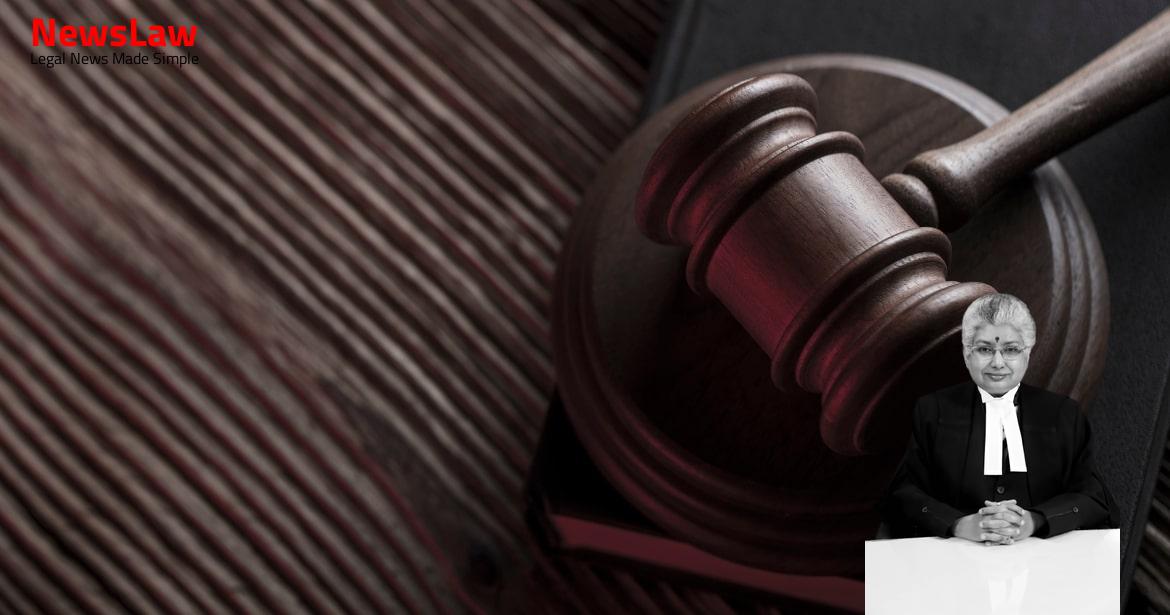The facts, in brief, giving rise to the present appeals are as under: 3.1 The writ petitioners, who were promoted to the post of Assistant Consolidation Officers (hereinafter referred to as “the ACOs”) against the recruitment year 1997-1998, approached the learned Single Judge of the High Court, claiming that their seniority was above the direct recruits of the same recruitment year.
Also Read: https://newslaw.in/case-type/civil/remand-of-writ-petition-for-restoration-and-decision-on-merits/
direct recruits were directly appointed to the post of ACOs, on the basis of the recommendation of the Uttar Pradesh Subordinate Services Selection Commission and as per the recruitment process under the Uttar Pradesh Revenue Consolidation Service Rules, 1992 (hereinafter referred to as “the 1992 Rules”). 4 The learned Single Judge of the High Court came to the conclusion that the direct recruits were appointed on 18 August 1997, whereas the writ petitioners were promoted on 16 December 1997. The learned Judges of the Division Bench of the High Court, vide the impugned judgment and order dated 4 September 2014, upheld the findings of the learned Single Judge of the High Court, but modified the same to the extent that the State shall apply rota system to direct recruits and promotees appointed in one recruitment year. Singh, learned Senior Counsel, submitted that the direct recruits were appointed as ACOs on 18 August 1997, whereas the promotees came to be promoted vide order dated 16 December 1997.
It is submitted that, since the appellant was appointed much prior to the date on which the promotees were promoted, the 2005 seniority list rightly placed the direct recruits (including the appellant herein) above the promotees.
Singh further submitted that if the judgments of the learned Single Judge and the Division Bench of the High Court are upheld, it would amount to permitting the promotees to get seniority retrospectively, which is not permissible in view of the law as laid down by this Court in the case of Uttaranchal Forest Rangers’ Assn. Seniority where appointments by promotion and direct recruitment.- (1) Where according to the service rules appointments are made both by promotion and by direct recruitment, the seniority of persons appointed shall, subject to the provisions of the following sub-rules, be determined from the date of the order of their substantive appointments, and if two or more persons are appointed together, in the order in which their names are arranged in the appointment order: (2) The seniority inter se of persons appointed on the result of any one selection,– (a) through direct recruitment, shall be the same as it is shown in the merit list prepared by the Commission or by the Committee, as the case may be; (b) by promotion, shall be as determined in accordance with the principles laid down in Rule 6 or Rule 7, as the case may be, according as the promotion are to be made from a single feeding cadre or several feeding cadres. Direct recruits and so on Provided that: (i) where appointment from any source are made in excess of the prescribed quota, the persons appointed in excess of quota shall be pushed down, for seniority, to subsequent year or years in which there are vacancies in accordance with the quota; (ii) where appointment from any source fall short of the prescribed quota and appointment against such unfilled vacancies are made in subsequent year or years, the persons so appointed shall not get seniority of any earlier year but shall get the seniority of the year in which their appointments are made, so however, that their names shall be placed at the top followed by the names, in the cyclic order of the other appointees; (iii) where, in accordance with the service rules the unfilled vacancies from any source could, in the circumstances mentioned in the relevant service rules be filled from the other source and appointment in excess of quota are so made, the persons so appointed shall get the seniority of that very year as if they are appointed against the vacancies of their quota.”
The perusal of sub-rule (1) of Rule 8 of the 1991 Rules would reveal that, where according to the service rules appointments are made both by promotion and by direct recruitment, the seniority of persons appointed shall, subject to the provisions of the said sub-rules, be determined from the date of the order of their substantive appointments.
Similarly, it provides that, where appointments from any source fall short of the prescribed quota and appointment against such unfilled vacancies are made in a subsequent year or years, the persons so appointed shall not get seniority of any earlier year but shall get the seniority of the year in which their appointments are made, so however, that their names shall be placed at the top followed by the names, in the cyclic order of the other appointees.
Also Read: https://newslaw.in/case-type/criminal/presumption-of-genuine-endorsements-in-cheque-case/
Rule 5 of the 1992 Rules provides that, insofar as posts of ACOs are concerned, 67% posts would be filled by direct recruitment through the Uttar Pradesh Subordinate Services Selection Commission and 33% posts by promotion from amongst the substantively appointed Consolidators and Rectangulators through the Selection Committee.
(2) Where in any year of recruitment, appointments are to be made both by direct recruitment and by promotion, regular appointments shall not be made unless selections are made from both the sources and a combined list is prepared in accordance with Rule 18. Sub-rule (2) of Rule 19 of the 1992 Rules specifically provides that, where in any year of recruitment, appointments are to be made both by direct recruitment and by promotion, regular appointments shall not be made unless selections are made from both the sources and a combined list is prepared in accordance with Rule 18.
Sub- rule (3) of Rule 19 of the 1992 Rules further provides that, if more than one orders of appointments are issued in respect of any one selection, a combined order shall also be issued, mentioning therein the names of the persons in order of seniority as determined in the selection or, as the case may be, as it stood in the cadre from which they are promoted.
State of Maharashtra [(1990) 2 SCC 715 : 1990 SCC (L&S) 339 : (1990) 13 ATC 348] stated the legal position with regard to inter se seniority of direct recruits and promotees and while doing so, inter alia, it was stated that once an incumbent is appointed to a post according to rules, his seniority has to be counted from the date of his appointment and not according to the date of his confirmation. The date of entry in a particular service or the date of substantive appointment is the safest criterion for fixing seniority inter se between one officer or the other or between one group of officers and the other recruited from different sources. It is so because seniority cannot be given on retrospective basis when an employee has not even been borne in the cadre and by doing so it may adversely affect the employees who have been appointed validly in the meantime.”
Also Read: https://newslaw.in/case-type/civil/medical-negligence-and-compensation-a-landmark-decision/
This Court in the said case held that the effective date of selection has to be understood in the context of the service rules under which the appointment is made.
It further held that the seniority cannot be reckoned from the date of occurrence of the vacancy and cannot be given retrospectively unless it is so expressly provided by the relevant service rules. In view of sub-rule (2) of Rule 19 of the 1992 Rules, where the appointment of both the direct recruits and of the promotees were to be made in the same year of recruitment, regular appointments should not have been made unless selections were made from both the sources and a combined list was prepared in accordance with Rule 18 of the 1992 Rules. When the 1992 Rules specifically emphasized that, where in any year of recruitment, appointments were to be made both by direct recruitment and by promotion, regular appointments could not have been made unless selections were made from both the sources and a combined list was to be prepared in accordance with Rule 18 of the 1992 Rules, the seniority list dated 29 July 2005, which provided a higher seniority to the direct recruits, is, for the aforesaid reasons, not sustainable in law. In the said case, the promotees, who were promoted in 1991, claimed seniority over the direct recruits who were substantively appointed at a prior point of time in 1990.
Case Title: AMIT SINGH ASSISTANT CONSOLIDATION OFFICER OFFICE OF THE SETTLEMENT OFFICER OF CONSOLIATION Vs. RAVINDER NATH PANDEY (2022 INSC 1200)
Case Number: C.A. No.-008324-008327 / 2022



